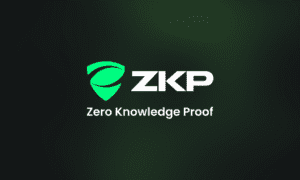The part of a digital currency analyst is versatile and needs a diverse set of skills and knowledge. Technical and fundamental analysis, risk management, data analysis, staying informed about regulatory and technological changes, and effective communication are all essential skills for success in this field. As the cryptocurrency market continues to evolve, the demand for skilled digital currency analysts will only grow. By developing and honing these key skills, analysts can provide valuable insights and help investors navigate the complexities of the cryptocurrency market.
Technical Analysis:
Understanding Price Charts:
Technical analysis is a fundamental skill for digital currency analysts. It involves studying price charts to identify trends and patterns that can indicate future price movements. Analysts must be proficient in reading candlestick charts, line charts, and bar charts. They should understand how to interpret various chart patterns, such as head and shoulders, triangles, and double tops and bottoms.
Utilizing Technical Indicators:
In addition to understanding price charts, digital currency analysts use technical indicators to enhance their analysis. Common indicators include moving averages, relative strength index (RSI), and Bollinger Bands. Moving averages help smooth out price data to identify trends. RSI measures the speed and change of price movements to identify overbought or oversold conditions. Bollinger Bands provide a range within which the price is expected to move, helping to predict potential price breakouts.
Fundamental Analysis:
Evaluating Blockchain Technology:
Fundamental analysis focuses on the intrinsic value of a cryptocurrency. Analysts must understand the underlying blockchain technology and its potential applications. This includes evaluating the technology’s scalability, security, and decentralization. Analysts should also consider the development team’s expertise and track record.
Assessing Market Adoption:
Market adoption is a crucial factor in determining a cryptocurrency’s long-term value. Digital currency analysts must evaluate the current and potential user base of a cryptocurrency. This involves studying the number of active wallets, transaction volumes, and partnerships with other companies. Analysts should also monitor news and developments related to the cryptocurrency’s adoption in various industries.
Risk Management:
Identifying Potential Risks:
Investing in cryptocurrencies is inherently risky due to their volatility and regulatory uncertainties. Digital currency analysts must be skilled in identifying potential risks and assessing their impact. This includes evaluating the liquidity of a cryptocurrency, the security of its underlying technology, and the regulatory environment. Analysts should also be aware of market manipulation tactics, such as pump-and-dump schemes.
Developing Risk Mitigation Strategies:
Once potential risks are identified, digital currency analysts need to develop strategies to mitigate them. This involves diversifying investment portfolios, setting stop-loss orders, and staying informed about market developments. Analysts should also advise investors on the importance of conducting their own research and not relying solely on market hype.
Data Analysis:
Collecting and Analyzing Data:
Data analysis is a core component of a digital currency analyst’s role. Analysts must be adept at collecting and analyzing large sets of data from various sources, including exchanges, blockchain explorers, and social media platforms. This involves using tools like Excel, Python, and specialized cryptocurrency analytics platforms.
Interpreting Market Sentiment:
Market sentiment plays a significant role in cryptocurrency price movements. Digital currency analysts must be skilled in interpreting market sentiment by analyzing social media trends, news articles, and forum discussions. Sentiment analysis tools can help analysts gauge the overall mood of the market and predict potential price changes based on shifts in sentiment.
Staying Informed:
Keeping Up with Regulatory Changes:
The regulatory landscape for cryptocurrencies is constantly evolving. Digital currency analysts must stay informed about regulatory changes and their potential impact on the market. This involves monitoring news from regulatory bodies, attending industry conferences, and participating in professional networks.
Following Technological Developments:
Technological advancements in the cryptocurrency space occur at a rapid pace. Digital currency analysts must stay up-to-date with the latest developments, including updates to blockchain protocols, new consensus mechanisms, and innovations in security and scalability. This requires continuous learning and adapting to new tools and techniques.
Communication Skills:
Presenting Analysis to Clients:
Effective communication is essential for digital currency analysts. They must be able to present their analysis and recommendations clearly and concisely to clients, whether they are individual investors or institutional clients. This involves creating detailed reports, giving presentations, and answering clients’ questions.
Writing Detailed Reports:
In addition to verbal communication, digital currency analysts must be skilled in writing detailed reports. These reports should include an overview of the market, analysis of specific cryptocurrencies, and actionable recommendations. Reports should be well-structured, easy to understand, and backed by data and analysis.
Conclusion:
The cryptocurrency market is one of the most dynamic and rapidly evolving financial sectors today. To navigate this complex landscape, digital currency analysts must possess a unique set of skills and knowledge. These professionals analyze market trends, predict price movements, and provide insights to help investors make informed decisions. In this article, we will explore the key skills every digital currency analyst needs to succeed and how these skills contribute to their effectiveness in the field.



































